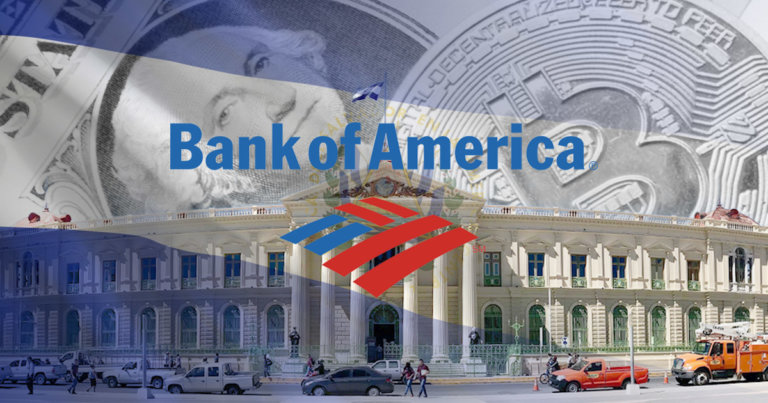 El Salvador’s Bitcoin bill has 5 key benefits, says Bank of America
El Salvador’s Bitcoin bill has 5 key benefits, says Bank of America El Salvador’s Bitcoin bill has 5 key benefits, says Bank of America
The Central American country became the only nation in the world to accept Bitcoin as legal tender earlier this year. Its since gotten both bouquets and brickbats.

Cover art/illustration via CryptoSlate. Image includes combined content which may include AI-generated content.
US financial services player Bank of America, one of the world’s largest banks, has come out in support of El Salvador’s Bitcoin bill in a note to clients last week.
It comes even as the country faces opposition from several global bodies for its decision to allow citizens to officially accept Bitcoin as payments for goods and services, and as outbound remittances.
“Using Bitcoin for remittances could potentially reduce transaction costs compared to traditional remittances channels,” said the Bank of America in the research note.
It added, “If using Bitcoin indeed lowers transaction costs, then for every dollar that the Salvadoran diaspora sends home, a greater portion of that dollar could be received by recipients, increasing their disposable income and reducing the proportion of remittances lost to financial intermediaries.”
Some of the opportunities @BankofAmerica sees with El Salvador’s #Bitcoin adoption: pic.twitter.com/5E63FM4TAF
— Nayib Bukele ?? (@nayibbukele) August 1, 2021
Advantages to using Bitcoin
As per Bank of America, some of the benefits of approving Bitcoin as legal tender are as follows:
- 70% of citizens in El Salvador do not have access to a bank account and financial services, meaning the use of Bitcoin could solve some of the hassles of opening and operating a bank account.
- Bitcoin could lower the cost of remittances, which comprise one-fifth of El Salvador’s gross domestic product. This could further mean citizens enjoy a slightly higher disposable income.
- El Salvador’s plans to utilize geothermal energy from its volcanoes to mine Bitcoin could spur the creation of cost-effective, clean, and renewable energy centers for such an operation—which could also help attract foreign investments into the controversial activity.
- As such, adopting Bitcoin could further attract foreign direct investments (FDI) into the country as foreign players bet on the ecosystem’s growth.
- Lastly, the use of Bitcoin can kickstart ‘financial digitalization’ and provide access to electronic payments with ‘a progressive touch.’
But the skeptics remain
While legalizing Bitcoin presents a host of advantages and opportunities for El Salvador as a country, the move has continued to attract criticism from several quarters. A major critic is the International Monetary Fund itself, which has repeatedly lambasted the legal tender status on several occasions this year.
In July, IMF officials said any country making cryptocurrencies a legal tender status meant local fiat currencies could turn highly volatile and hence unstable. In June, officials stated that the IMF continues to link cryptocurrencies with money laundering and the financing of terrorism.
Rating agency Moody’s had, after opposition from the IMF, downgraded the rating of the El Salvador government last month.
Troubles have come from even the country’s own opposition party, which stated the Bitcoin bill was “unconstitutional,” with some even holding protests.



























































































